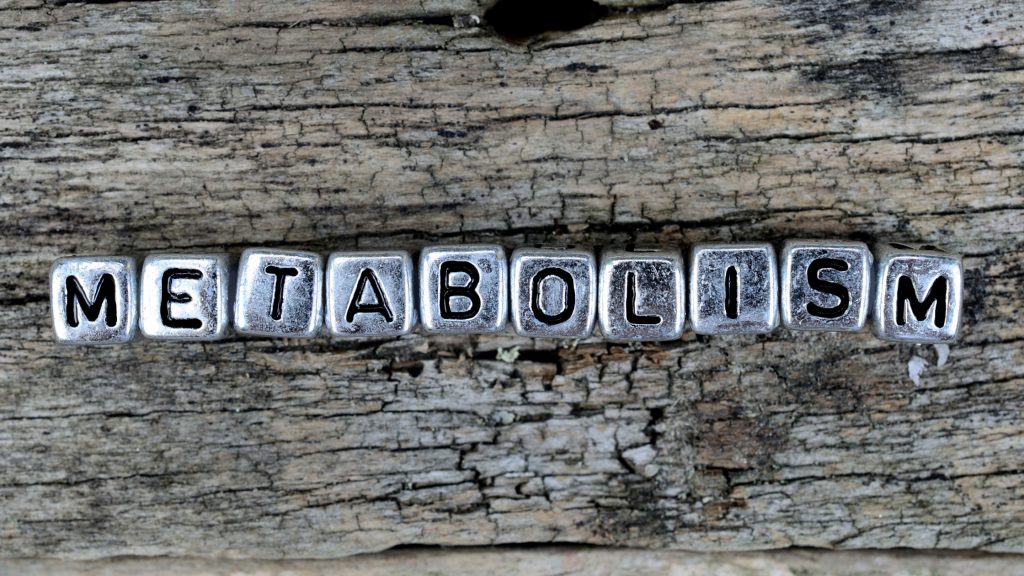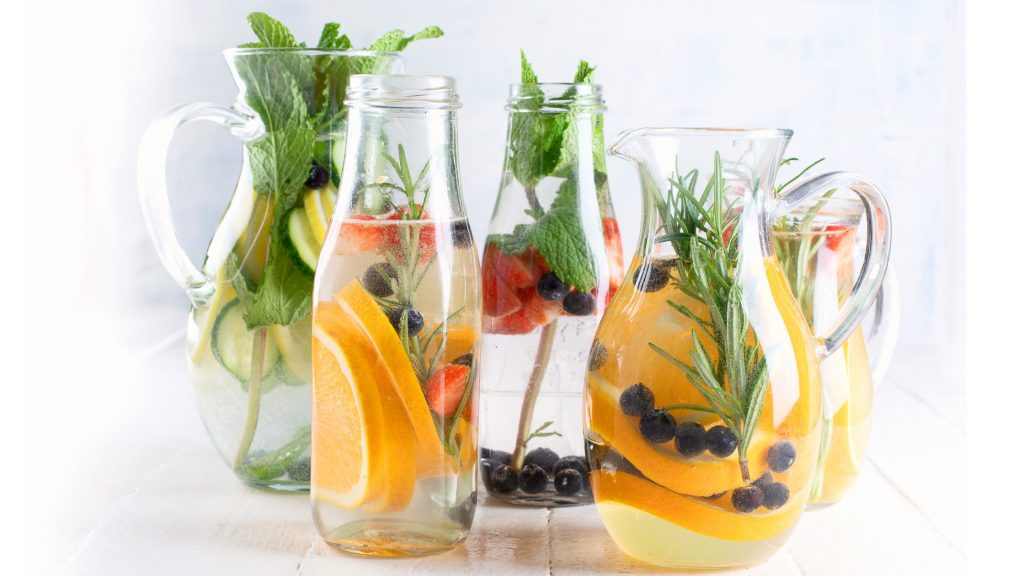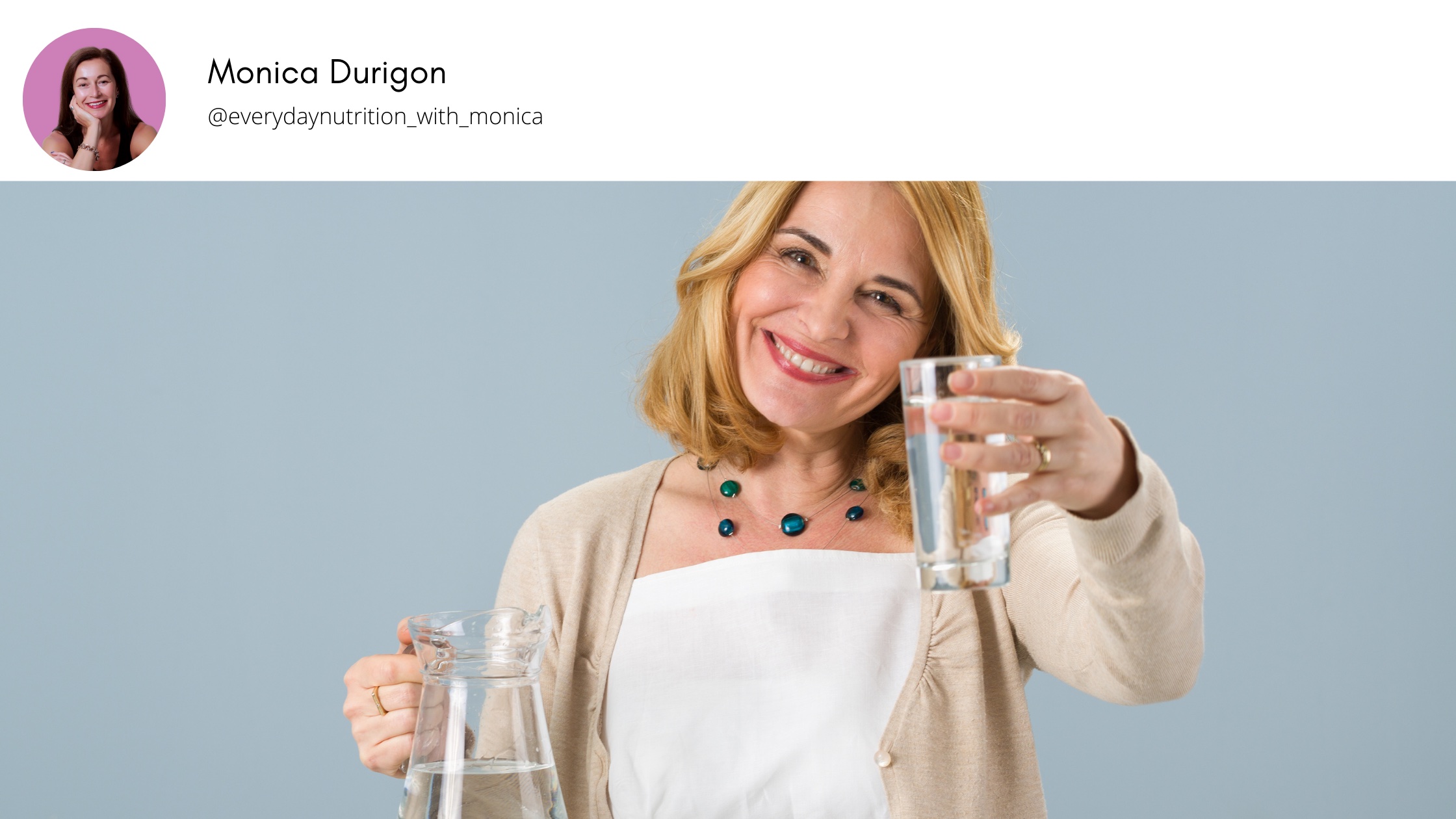Hey there, ladies! Today, we’re delving into the fascinating topic of hydration, weight management, and its connection to hormones during perimenopause and menopause.
PlusI am going to give you the most comprehensive and delicious list of ideas on keeping your hydration optimal and delicious!
The Surprising Link Between Hydration and Weight
You may have heard whispers that dehydration can contribute to weight gain, just like camels storing fat in their humps for long desert journeys. But let’s set the record straight—while we’re not camels, there is an intriguing relationship between hydration and weight management.

Appetite Regulation and Thirst vs. Hunger:
Proper hydration plays a crucial role in maintaining a healthy appetite. Sometimes, we confuse thirst for hunger, leading to unnecessary food intake. Staying hydrated helps us distinguish between thirst and hunger cues, preventing overeating and potential weight gain.
TIP:
Next time you feel a sudden urge to snack or reach for food, try this simple technique to determine if you’re truly hungry or just thirsty. Start by drinking a glass of water and wait for about 10-15 minutes. During this time, pay close attention to how your body feels. If you were genuinely hungry, you’ll still feel hungry after drinking the water. However, if you were simply thirsty, the water will satisfy your body’s hydration needs, and the hunger sensation will diminish.
By incorporating this habit into your daily routine, you’ll train yourself to recognise the difference between hunger and thirst cues. Remember to always keep a water bottle or glass of water nearby, especially during busy days, so that you can easily quench your thirst and avoid unnecessary snacking.

Metabolism and Energy Expenditure
Dehydration can have a temporary impact on metabolic processes and energy expenditure. While the effect is modest and short-lived, it’s important to note that our metabolism is influenced by various factors. Chronic underhydration isn’t the primary driver of weight gain, but proper hydration does support optimal metabolic function.
TIP:
I have written many blogs before on how to improve your metabolism, especially during perimenopause and menopause, when it is vital to support it to avoid fatigue, weight gain and swinging moods. Click here and here to read more info.

Water Retention
Dehydration can paradoxically lead to water retention. When our bodies lack water, they attempt to retain it, resulting in temporary weight gain due to water retention. It’s crucial to remember that this isn’t the same as fat storage—it’s just a temporary fluctuation but never the less something you can and should avoid…No one likes to look puffy and bloated due to extra water retention in their body tissues, and it’s being dehydrated affects your health in so many way, not just the way you look.
TIP:
Well, now you know that even if it sounds counterintuitive, staying hydrated actually helps flush out excess water from your body. Ensure you drink an adequate amount of water throughout the day to maintain hydration. Your first goal is to aim to achieve 8 glasses (250ml glass) of water per day. This amount varies according to your weight, level of physical activity or living in a hot climate.
Also, watch your sodium intake: Consuming excessive amounts of sodium can contribute to water retention. Be mindful of your salt intake by limiting your consumption of processed foods, canned goods, and fast food, as they are high in sodium. Check the labels for the amount of sodium and avoid anything that contains more than 1g of sodim per 100g of product.
According to the UK health guidelines, a food product is considered high in sodium if it contains more than 1.5 grams (or 1,500 milligrams) of sodium per 100 grams. This guideline is based on the recommended daily intake of sodium for adults, which is no more than 2,400 milligrams (2.4 grams) per day.
I am more cautious with my recommendation because it is easier than we think to get over that amount of sodium, especially for my busy professional ladies who tend to eat out regularly, work away from home and rely on ready-made meals or often travel for their work.

Hydration, Hormones, and Perimenopause/Menopause
Now ladies, let’s explore the special connection between hydration, hormonal imbalances, and the unique challenges women face during perimenopause and menopause because hormonal shifts during this phase can contribute to weight changes and water retention.
Estrogen and Water Balance:
Estrogen plays a vital role in fluid regulation in the body. As estrogen levels decline during perimenopause and menopause, it can disrupt the body’s ability to maintain fluid balance. This imbalance may lead to water retention and contribute to fluctuations in weight.
Hormonal Symptoms and Dehydration:
Hot flashes, night sweats, and increased urination are common hormonal symptoms during perimenopause and menopause. These symptoms can increase the risk of dehydration if we fail to replenish lost fluids adequately. Dehydration, in turn, can exacerbate symptoms and impact overall well-being. It’s a vicious cycle that we must break!
Hormonal Imbalances and Weight Management:
On top of the sex hormones’ fluctuations, other hormonal imbalances, such as increased insulin resistance and cortisol levels, can occur during perimenopause and menopause. Yes! We get hit from multiple angles!
These imbalances can affect weight distribution and make weight management more challenging. That is why proper hydration is not a second thought but must become an essential part of a plan to support hormonal balance and weight management.

A GIFT FOR YOU:
If you find that drinking plain water can sometimes become monotonous, and more enticing beverages tempt you ( …watch out for those soda drinks coming in! … they are very bad news!), this GIFT is for you.
DOWNLOAD my guide “HYDRATION REMIX: 15 WAYS TO MAKE WATER EXCITING”, so, the next time you find yourself craving something more exciting to drink, you can try one of my delicious suggestions.
Stay hydrated and fabulous! 😍💧

References:
Institute of Medicine. (2005). Dietary Reference Intakes for Water, Potassium, Sodium, Chloride, and Sulfate. The National Academies Press.
Guelinckx, I., Tavoularis, G., König, J. et al. (2016). Contribution of Water from Food and Fluids to Total Water Intake: Analysis of a French and UK Population Surveys. Nutrients, 8(10), 630.
Fagherazzi, G., Vilier, A., Bonnet, F., et al. (2011). Dietary Acid Load and Risk of Type 2 Diabetes: The E3N-EPIC Cohort Study. Diabetologia, 54(2), 517-526.
Santoro, N., Epperson, C. N., Mathews, S. B. (2015). Menopausal Symptoms and Their Management. Endocrinology and Metabolism Clinics of North America, 44(3), 497-515.
Prior, J. C. (2014). Perimenopause: The Complex Endocrinology of the Menopausal Transition. Endocrine Reviews, 35(6), 393-457. https://pubmed.ncbi.nlm.nih.gov/25099446/





0 Comments